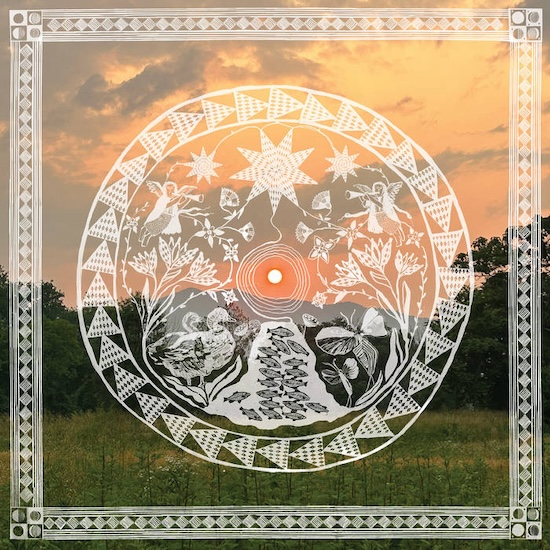When The Roses Come Again feels like it was recorded by someone standing at the entrance to a barn, looking out across the plains as spring turns to summer and summer into autumn. And there’s a good reason for that – it was. Daniel Bachman holed up in a cabin in the Shenandoah National Park with little more than a laptop and a set of handmade instruments (including an Appalachian mouth bow) and, although this Virginia retreat is a good 11 hour drive from Chicago, the bucolic folk-fingering on display gives the sense that he was gazing out upon the same grand vistas as Pan American.
An idling engine here, the wriggle of a reclining rattlesnake there. The clank of cowbells signalling a disturbed herd tottering up a hill. On ‘By The River, Flowers Shiver (Fading dying in their pride)’ double-strummed strings cause glorious waves of silver to rise as Bachman veers away from traditional scales and, instead, appears to be attacking the instruments like a man chopping wood.
Pan American isn’t the only touch point. ‘Someone Straying, Long Delaying’ sounds akin to John Fahey covering the Sun City Girls. Or vice versa. And the finger-picked ambience of ‘Sunshine Over Clover Blossom On The Meadow Wide’ is pure Bad Timing-era Jim O’Rourke. This is more than mere imitation, however. Bachman is building on his forebears. And he certainly has forebears to build upon – he’s related, on his mother’s side, to the Hostetler Blind Family Band. A mid-19th century string band, all born blind (including some born without eyes). When The Roses Come Again is his own one-man-string-and-glitch-band.
Which brings us to another aspect of the record: how it entwines with (more) modern technology. There’s an oscillator-drawn drone coursing throughout the album, linking tracks together like an aural paste, and the finale is formed from a faltering loop of softly padding noise which Bachman picks his gently reverb-ed guitar lines over. Metallic scrapes and whirrs fill in for rusting birds announcing a new dawn on ‘As I wander, I will ponder (On a happy by and by)’, which, like the rising sun banishing the night, expels an air of despondence which had permeated the front half of the record.
Shackled to that late optimism is an interest in obsolete electronics. Particularly those used for communication. ’Someone’s Roaming In The Gloaming’, for example, features a treated voice skipping vowels and clashing consonants as if a distant answerphone has developed a stutter. The penultimate track burbles and gurgles like a sputtering fax machine whereas opener, ‘Neath The Shadow, Down The Meadow’, sounds like someone trying to mash a banjo through a dial-up modem.
Communicative loss seems to be at the heart of these archaic electronics struggling to transmit their messages. When juxtaposed with the permeating air of folk-y tranquility, it’s difficult to ignore Bachman’s implied yearning for a simpler age. And who can blame him? The world’s a lot right now. Maybe it always has been and always will be. Still, pulling up a chair and surveying a vast expanse, with little more than a six string and a crackling phone line, sure sounds lovely.


